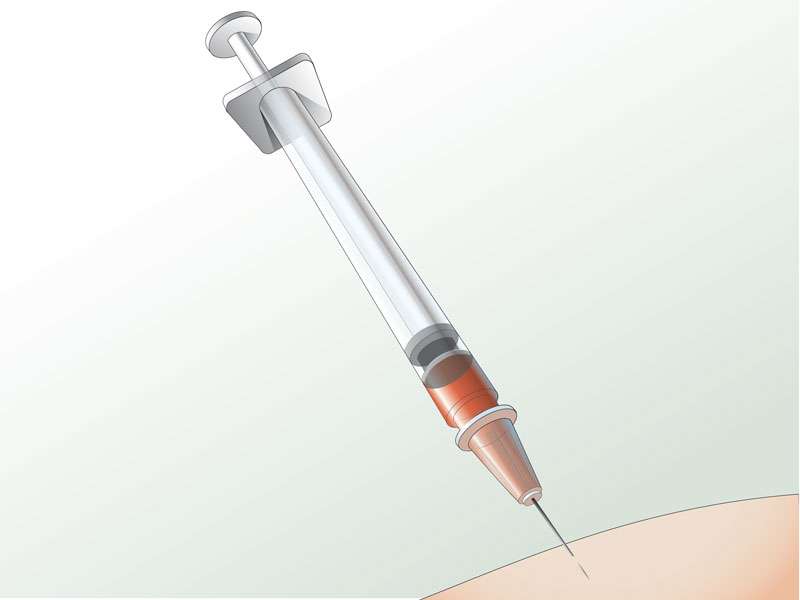Dengue vaccine may increase risk of severe disease if used in areas with low rates of infection

These infections are also more likely to need hospitalisation, suggests the study, by scientists from Imperial College London, John Hopkins Bloomberg School of Public Health and the University of Florida.
The research, published in the journal Science, analysed all publicly available clinical trial data for the vaccine. The results suggest that in people who have never been exposed to dengue before, the vaccine primes the immune system so that if they are subsequently infected, the infection is more severe.
However in people who are have been exposed to the virus before vaccination, the vaccine reduces the severity of future infections.
The researchers recommend testing people before they receive the vaccine, to establish if they have previously been exposed to the dengue virus. This would help avoid triggering an increase in serious cases of the disease.
Dengue is a viral infection that causes just under 400 million cases per year. According to the latest estimates, around half of the world's population are thought to be at risk. The virus is spread by mosquitoes, and causes fever, headache, muscle and joint pain. In some cases, it can lead to a life-threatening condition called haemorrhagic fever which is a leading cause of death and serious illness among children in some Asian and Latin American countries.
Unlike most infectious diseases, the second time a person is infected with dengue is usually far more serious than the first. This may be why the vaccine appears to amplify the illness in some individuals, particularly young children.
Normally, when a person is infected with a virus their immune system builds defences against it. This means when they are infected a second time, the virus is destroyed before triggering symptoms. However, with dengue, the virus primes the immune system to work against the body. So when a person is infected a second time, a component of the immune system - called antibodies - help the virus infect the cells, leading to a more severe infection.
This has serious implications for the vaccine, explains Professor Neil Ferguson, co-lead author, who is the Director of the MRC Centre for Outbreak Analysis and Modelling at Imperial College London: "If someone has never been exposed to dengue, the vaccine seems to act like a silent infection. The initial exposure to the virus from the vaccine primes the immune system, so when they are infected again, the symptoms are more likely to be severe."
The vaccine, produced by the company Sanofi-Pasteur, is available in six countries and has been trialled on around 30,000 people from ten countries.
After analysing the data, the research team formulated a computer model to predict the effectiveness of the vaccine if used more widely.
Professor Neil Ferguson said: "Having a licensed dengue vaccine available is a significant step forward for dengue control. However, we should be careful in considering where and how to use this vaccine as there is still uncertainty about the impact."
The team stress the vaccine stills holds benefits - but only if used in areas heavily affected by dengue, where individuals being vaccinated are likely to have encountered the virus before.
Derek Cummings, Professor of Biology at the University of Florida and co-author of the study added: "In places with high transmission intensity, most people have been already exposed to dengue at the time of vaccination, and the vaccine has higher efficacy on average. However, in places with lower transmission intensity, were individuals haven't been previously exposed, the vaccine can place people at risk of severe disease and overall, increase the number of hospitalized cases."
Dr Isabel Rodriguez-Barraquer, joint first author of the research from Johns Hopkins Bloomberg School of Public Health, explained: "Our results indicate that screening potential vaccine recipients could maximize the benefits and minimise the risk of negative outcomes."
The World Health Organization recommends that countries consider introduction of the dengue vaccine only in geographic settings (national or subnational) where data suggests a high burden of disease.
Professor Ferguson added: "Our model refines estimates of which places would see a decline in dengue incidence with large scale vaccination programmes, and which places should not implement programmes at this point in time. These results present the first published, independent predictions of the potential impact of vaccination that take account of recent data showing that the vaccine can increase the risk of severe dengue disease in young children."
The authors hope their analysis can help inform policy-makers in evaluating this and other candidate dengue vaccines.
More information: "Benefits and risks of the Sanofi-Pasteur dengue vaccine: Modeling optimal deployment," Science, science.sciencemag.org/cgi/doi … 1126/science.aaf9590














